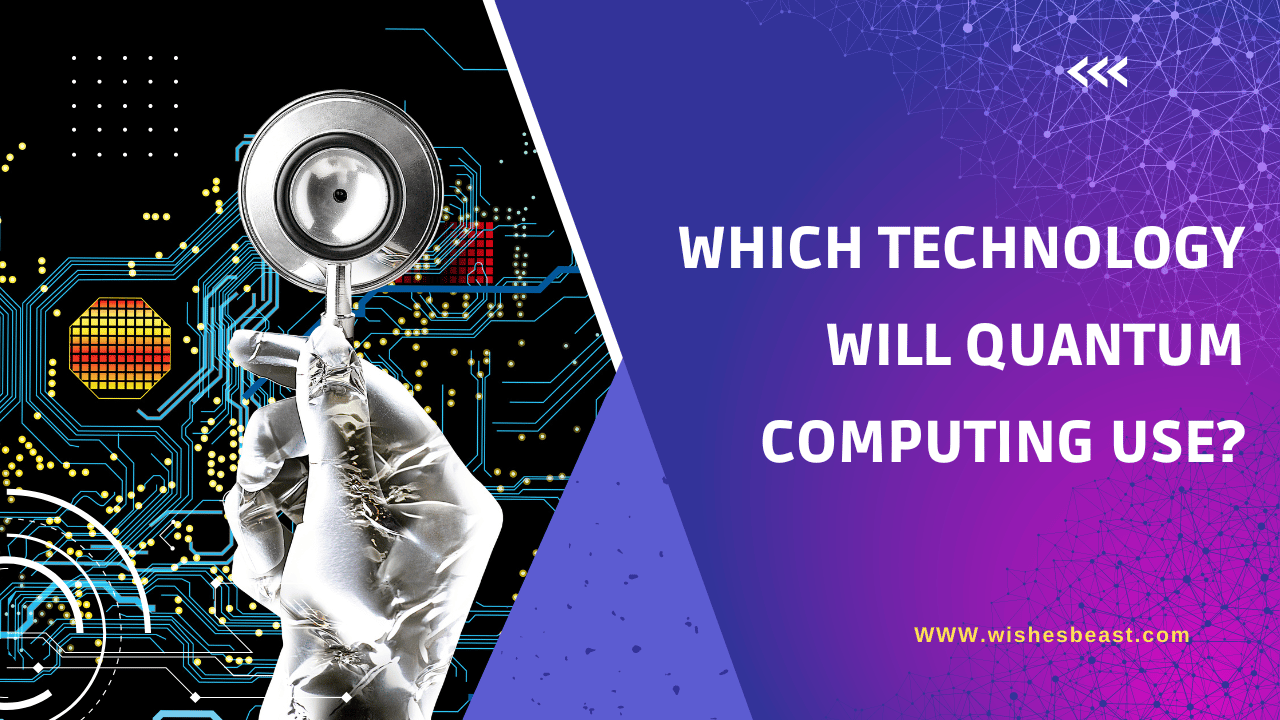How will quantum computing affect cryptography?
Quantum computing promises a paradigm shift, most profoundly in the realm of cryptography. Classical cryptographic methods rely on problems like integer factorization, which are computationally intensive for classical computers but can be tackled efficiently by quantum algorithms, such as Shor’s algorithm. Such advancements could render many encryption methods obsolete, demanding a rapid transition to quantum-safe encryption.
Can quantum computing break current encryption?
Yes, quantum computing possesses the capability to break many current encryption standards. But fret not, this realization has spurred a global race for quantum encryption and quantum-safe algorithms, ensuring data security in a post-quantum era.
What industries will quantum computing revolutionize?
The potential of quantum computing is not limited to just one industry. Medicine, finance, energy optimization, aerospace, and materials science all stand on the precipice of revolutionary transformations.
Will quantum computing improve drug discovery?
Absolutely! Quantum simulations can provide insights into molecular and quantum chemistry simulations, paving the way for faster and more efficient drug discovery processes. Diseases that have eluded medical solutions for years might finally meet their match.
How does quantum computing work in medicine?
Beyond drug discovery, quantum computing, combined with quantum machine learning, can enhance diagnosis, treatment recommendations, and personalized medical solutions. This means healthcare tailored for each individual, maximizing treatment efficacy.
What is the impact of quantum computing on finance?
Quantum computers can process vast amounts of data simultaneously, thanks to the principle of superposition. In finance, they can optimize trading strategies, manage risk better, and forecast market movements with unprecedented accuracy.
How can quantum computing enhance artificial intelligence?
Quantum AI is not just a buzzword. Quantum algorithms can speed up machine learning processes, making AI models more robust and quicker to train. This means smarter, more responsive AI applications in every sector, from healthcare to entertainment.
What are the implications of quantum computing for logistics?
Imagine a world where supply chains are optimized in real-time, where goods are transported in the most efficient manner possible. Quantum computing can crunch complex optimization problems in logistics, driving down costs and delivery times.
Can quantum computing improve weather forecasting?
Definitely! With quantum simulations, weather models can be more detailed and accurate. This can lead to better disaster preparedness and a deeper understanding of climate change impacts.
How will quantum computing impact energy optimization?
Quantum algorithms can find optimal solutions for complex problems. In energy, they can help in devising efficient energy storage, grid distribution, and even contribute to the discovery of new sustainable energy sources.
How does quantum computing relate to climate modeling?
Quantum computers take climate modeling to the next level. Traditional models struggle to simulate all variables influencing our climate, but quantum models can process these in tandem, offering a more holistic view. Accurate climate models can pave the way for effective climate change mitigation strategies, potentially averting disasters and ensuring a sustainable future.
Will quantum computing disrupt machine learning algorithms?
Indeed, the world of quantum machine learning is burgeoning. Machine learning relies heavily on processing vast datasets and identifying patterns. Quantum computers, harnessing the power of qubits and quantum entanglement, can sift through data at astonishing speeds. This capability will result in faster, more efficient machine learning algorithms, opening the door to real-time data processing and AI-driven insights at an unprecedented scale.
What are the challenges of integrating quantum computing into communication systems?
Quantum communication represents the future of secure data transfer. But this journey is not without hurdles. Challenges such as quantum data storage, stable quantum bits (qubits) maintenance, and quantum-to-classical system integration loom large. Yet, as with all innovative technologies, solutions like quantum error correction and quantum relays are being developed, promising a future where data breaches may be a thing of the past.
How will quantum computing affect supply chain management?
In a globalized world, efficient supply chain management is crucial. Quantum computing can model and optimize complex supply chain networks by analyzing all variables concurrently. Factors such as transportation logistics, inventory levels, demand forecasts, and external influences like geopolitical events can be processed simultaneously to ensure a seamless, efficient supply chain.
Can quantum computing enhance optimization algorithms?
Quantum annealing is a testament to how quantum computing can revolutionize optimization. From financial modeling to manufacturing processes, optimization is key. Quantum algorithms can search through a multitude of solutions at once, pinpointing the optimal outcome faster and more accurately than ever before.
What are the potential applications of quantum computing in aerospace?
From designing new materials for aircraft to optimizing flight paths in real-time, the aerospace sector will soar with quantum computing. Moreover, quantum sensors, leveraging the delicate nature of quantum systems, could lead to ultra-accurate navigation systems, making air travel safer and more efficient.
How does quantum computing influence quantum chemistry simulations?
At its heart, chemistry is a quantum science. Traditional computers grapple with simulating complex molecules. Quantum computers, on the other hand, can simulate large molecules and their reactions at the quantum level. This will be invaluable in designing new drugs, understanding enzymatic reactions, and unveiling the mysteries of life at the atomic and subatomic levels.
What are the ethical considerations of quantum computing advancements?
Every technological leap brings ethical considerations, and quantum computing is no exception. The potential to break current encryption systems raises concerns about data privacy. The accelerated capabilities in AI and machine learning could result in job displacements or be used in unscrupulous ways. As with all technologies, a balanced, ethical approach to quantum computing’s integration into society will be paramount.
How will quantum computing impact data security and privacy?
While quantum computers can theoretically break many encryption methods, they also usher in the age of quantum cryptography. Quantum encryption, harnessing principles like quantum entanglement, ensures that any interception or eavesdropping on a data transmission can be detected, making data breaches virtually impossible. The future of data security, thus, looks not just secure, but quantum secure.
Frequently Asked Questions
Q: How does quantum computing relate to climate modeling?
A: Quantum computers can run detailed simulations faster and more accurately, leading to better predictions and actionable insights about climate change.
Q: Will quantum computing disrupt machine learning algorithms?
A: Yes, for the better! Quantum computing can make machine learning algorithms faster and more accurate.
Q: What are the challenges of integrating quantum computing into communication systems?
A: While quantum communication offers ultra-secure communication channels, challenges like error correction, distance limitations, and integration with existing infrastructure exist. However, advancements like quantum repeaters are addressing these challenges head-on.
Q: How will quantum computing affect supply chain management?
A: Quantum computing can optimize supply chains in real-time, considering all variables simultaneously, ensuring efficient and cost-effective operations.
Q: Can quantum computing enhance optimization algorithms?
A: Undoubtedly! Quantum annealing and other quantum algorithms can find optimal solutions faster than classical counterparts.
Also Read: Which Technology is Making Quantum Computing Easier to Access and Adopt?
Final Words
As the quantum era dawns upon us, its potential to reshape industries and redefine paradigms is undeniable. Embracing this change, understanding its implications, and harnessing its power is the key to a brighter, more efficient, and innovative future.
Concluding our analysis of “Which Technology Will Quantum Computing Use?” we hope that this article has acted as a definitive resource, providing you with clarity and enabling you to make well-informed choices.

